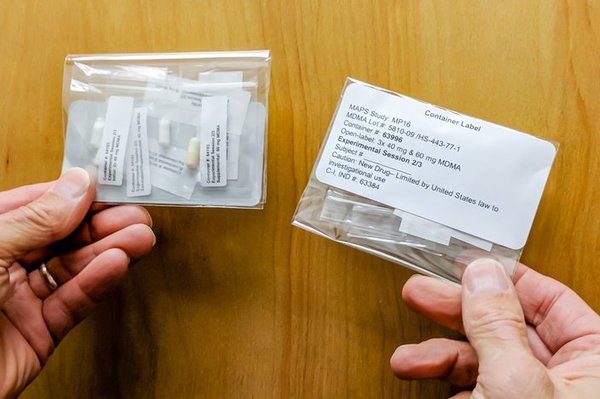The quest to legalize psychedelics for therapeutic purposes may soon take a big step forward.
A public benefit corporation called the Multidisciplinary Association for Psychedelic Studies submitted a drug application to the U.S. Food and Drug Administration this week that seeks approval to use MDMA capsules, in combination with therapy, to treat post-traumatic stress disorder.
- READ MORE:
- Psychedelics may help people with ADHD, but research remains limited
- Microdosing psychedelic mushrooms may reduce stress and compulsivity, new study shows
- People with depression are increasingly taking LSD, and research suggests it may help when used under supervision
If approved, the application would pave the way for MDMA to be rescheduled from an Schedule I illegal drug under federal law and allow for it to be prescribed to PTSD patients for psychedelic-assisted therapy. The drug would be the first approved by the FDA for psychedelic-assisted therapy.
Known for years as a party drug, MDMA has become the focus of a growing number of studies exploring its effectiveness in the treatment of mental health disorders, most notably PTSD and depression.
Though still illegal under federal law, MDMA was given a breakthrough therapy designation in 2017, a status which legally clears the way for the expedited exploration of a drug's potential therapeutic value. Since then, studies and clinical trials showing MDMA's effectiveness in treating PTSD and other mental health issues — including research conducted in the Philadelphia area — have piled up. In 2018, a study from the University of California, Davis found that psychedelics like LSD and MDMA may repair damaged neural circuitry well enough to treat symptoms of anxiety and depression.
MAPS, the public benefit corporation that submitted the drug application, has been involved in several clinical trials exploring the MDMA's effectiveness for treating PTSD. One of those studies, published in the journal Nature earlier this year, found that MDMA-assisted therapy reduced PTSD symptoms in 86.5% of participants when compared to a placebo.
MDMA — formally methylenedioxymethamphetamine and casually known as molly and ecstasy — is a synthetic drug that reduces feelings of fear and defensiveness while boosting feelings like trust and empathy. Clinicians say these attributes can enhance the effectiveness of psychotherapy. Delivered intermittently alongside psychotherapy, MDMA can help some patients acknowledge and work through past trauma and experiences.
Whether psychiatrists will start prescribing MDMA pills to help treat PTSD remains to be seen. The FDA is expected to respond to the application within 60 days.


